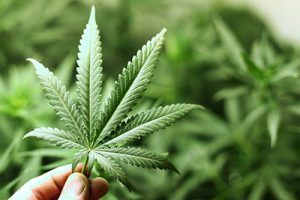
On February 27, 2017, U.S. Attorney General Jeff Sessions suggested that there was indeed a link between the increase in violent crime and the legalization of marijuana. His views were shaped largely by a conversation he had with the attorney general of Nebraska who was concerned about legalized marijuana in Colorado influencing his state. In December 2014, Oklahoma and Nebraska both file a motion for permission from the Supreme Court to sue the state of Colorado over damages they suffered because of Colorado’s legalized recreational marijuana businesses. But according to a new study, legal pot doesn’t lead to more crime.
The study, published in the journal PLOS One, found that robbery and burglary rates were unaffected by medicinal marijuana legalization. This debunked the long-time belief that dispensaries and grow houses lead to an increase in victimization due to the amount of drugs and cash present in these facilities.
The study looked at crime rates for all 50 U.S. states from 1990 to 2006 – especially the 11 states that legalized medical marijuana during that time. They reviewed the crime rates for Part 1 crimes specifically, meaning, those violent crimes such as rape, robbery, assault and homicide. The lead study’s author told the Huffington Post that “we believe that medical legal pot doesn’t lead to more crimelegal pot doesn’t lead to more crime.”
A separate study presented at the 2015 Fall Research Conference of the Association for Public Policy Analysis and Management reviewed an investigation between medical marijuana legalization and violent crime. They found that medical marijuana legalization led to a significant decrease in arrest rates for violent crimes in both juveniles and adults, an overall reduction in property crime, and a decline in drug abuse violation arrests.
So what happened in Denver when marijuana was legalized? Surprisingly, in the first year after recreational marijuana was legalized, Denver saw a 2.2 percent drop in violent crime rates, property crime dropped by 8.9 percent. Burglaries in particular decreased in Denver by 9.5%. Arrests for marijuana possession also – not surprisingly – decreased. Since 2010, marijuana possession arrests dropped by 84%. Over the same time period, arrests for cultivating and distributing marijuana dropped by more than 90%.
Legalizing Marijuana in Colorado Doesn’t Mean No Arrests
Although marijuana legalization in Colorado has reduced the number of arrests made for distributing, selling, and possessing marijuana, it doesn’t mean that no one can be arrested for marijuana possession. There are limitations to the law, however, and numerous ways you can still get into trouble with marijuana. To use recreational marijuana within the confines of the law, persons over 21:
- May possess up to one ounce of marijuana for recreational use
- May cultivate no more than six marijuana plants
- May give away- without exchanging money- marijuana to other persons 21 years of age and older
- May grow, process, and sell industrial hemp- this is unlike the cannabis grown for the purpose of getting high
The legislation does not legalize the following:
- Possessing, cultivating, or using marijuana if you are under 21 years of age
- The sale of marijuana
- Smoking marijuana in public
Contact Our Boulder Criminal Defense Lawyers
 If you are facing drug charges or criminal charges of any kind, you need an experienced Boulder criminal defense lawyer on your side from the moment you are arrested. Contact the Boulder drug crime defense lawyers at Steven Louth Law Offices today for a free consultation and review of your case. Call us at (303) 422-2297 to start building a solid defense against these serious criminal charges.
If you are facing drug charges or criminal charges of any kind, you need an experienced Boulder criminal defense lawyer on your side from the moment you are arrested. Contact the Boulder drug crime defense lawyers at Steven Louth Law Offices today for a free consultation and review of your case. Call us at (303) 422-2297 to start building a solid defense against these serious criminal charges.
